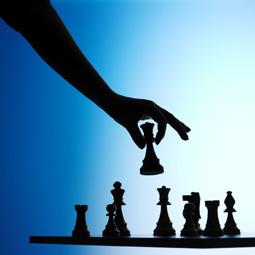Game-Inspired Tactics to Get You Motivated
Published: Mar 06, 2012

Ever wonder why it's so hard to focus on work, but you can effortlessly play Words With Friends for hours?
The steady flow of challenges and rewards may be the reason why your motivation to play games exceeding that to fill in spreadsheets. And employers are getting wise.
The same concepts that make both games and social media tools like Facebook so addicting—instant feedback! "likes!"—are being used to fuel employee motivation in the workplace. And we mean that literally: companies like LiveOps actually rely on an app called "MyWork Community" to track employee "points," and essentially make staff decisions. High score wins the job!
This tactic is definitely a bit controversial; some people are affectionately referring to the new trend as the "gamification" of the workplace, while others call apps like MyWork "exploitationware." But whether or not it comes to your office, a "gaming" approach to the long, boring, unstructured workday might not be a bad way to get motivated.
1. Have a Larger, Never Ending Goal
Teachers often see this motivation drop off in students after a test: striving for grades, they found a major flaw in the rewards system of "grades": once the grade is earned, the striving ends. But the whole point of an education is constantly expanding your mind, increasing your knowledge, and challenging yourself—just like a workday is about strengthening the business overall, and increasing your impact on the company. How can that happen if the only tangible goal is one "A"—or one 'to-do'--at a time?
Instead, have a larger, multifaceted picture of success—one that takes into account a need for constant growth and change, even once you're there—sort of like levels in a video game.
Maybe you just got a promotion, but if your overall goal is to be a business mogul and own your own company, there's always room for improvement.
2. Track Your Points
It's amazing how much effort the promise of a "high score" can elicit. Companies have caught on to this—which is why the latest gamification trends, like "MyWork Community," often include merit badges and "trophies" an employee can collect and display on his or her page.
Of course, you can institute your own system. Make it on time to work every day for a week? 500 points! Speak up at your company roundtable? 200 points!
The best way to harness the power of "points" is to keep track of them in terms of a larger goal. Are you hoping to break out of your shell and make your mark at work this year? Assign points for reaching out to colleagues, or pitching an idea to your boss. Then take a look at your personal growth once you've reached your goal. Does this mean you're ready to ask for a raise or new responsibilities? Maybe it's just a way to push yourself to develop more. Even so, seeing your effort in terms of numbers will be satisfying.
3. Reward Yourself
Whether it's another character yelling, "Great job!" or just the fun wind-chime sound that rings out when you pick up coins, videogames are full of rewarding responses. Don't neglect positive feedback in your role at work, which is much less stimulating than roaming dungeons or World War II battlegrounds with a rotating arsenal of deadly weapons.
Finish a project before noon, without getting distracted? You've just earned your favorite take out for lunch. Earn 1,000 "early arrival" or "late departure points"? Sneak out a half hour early on a Friday to catch a movie or hit the gym.
Even tiny rewards, like having a fun "victory" playlist to listen to while you work on can be helpful. Use all your senses to inject a little fun into your day and get yourself to the next level.
--Cathy Vandewater, Vault.com
Read More:
Latest Game Theory: Mixing Work and Play (WSJ)
Work Smarter: 4 Tips for Increasing Your Productivity
